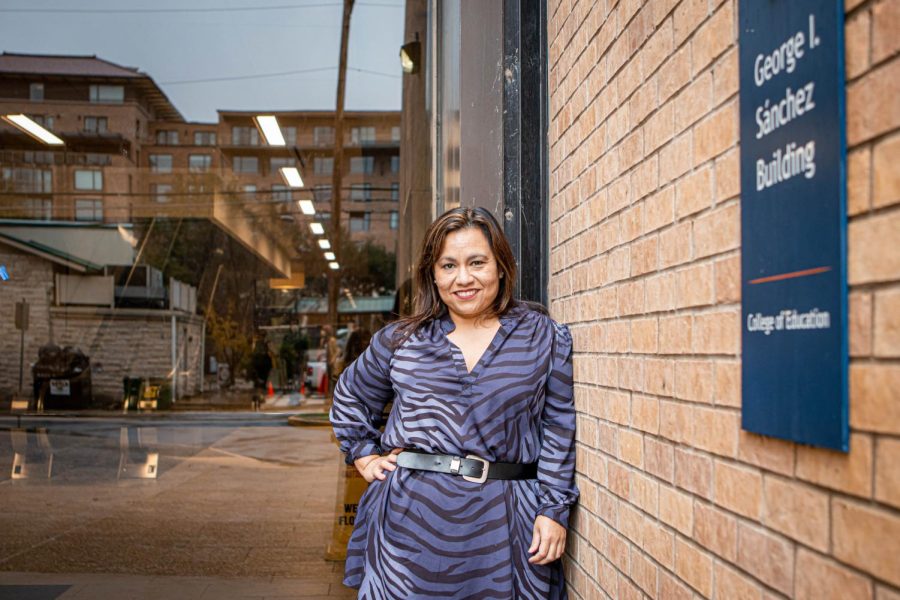UT professor co-chairs committee to recommend equitable policies, reform higher education
February 3, 2022
A UT professor co-chaired a committee focused on combating inequity in higher education through policymaking, formed as a result of President Joe Biden’s January 2021 executive order on racial equity.
The Advisory Committee for Equitable Policymaking Processes, convened by the Institute for Higher Education Policy, released a report on Jan. 20 that outlined five principles policymakers should consider to better achieve racial equity in higher education, said Stella Flores, co-chair and associate professor of higher education and public policy in the College of Education.
The five principles suggest that successful policies frame issues appropriately, use respectful language, be created by diverse policymakers, invest in under-invested in communities and be data-based.
Flores said the committee itself represented a wide range of stakeholders all committed to equity in higher education.
“There’s no way I would have come up with these thoughts on my own because I don’t live and breathe in these communities the way they do,” Flores said.
The stakeholders include representatives from key policy groups and civil rights groups, as well as policy scholars and attorneys, Flores said. She said the inclusion of both people dedicated to equity and people more involved in lawmaking processes allowed them to create feasible recommendations.
Because the creation of policy itself is often inequitable, assessing its nature can aid in eliminating inequity, said Amanda Janice Roberson, director of research and policy at the Institute for Higher Education Policy.
“Maybe we (used to think) about equity just in terms of policy outcome, but not necessarily in how we were constructing the policy,” Roberson said. “Are we authentically engaging impacted communities? … Is the framing of this policy or the process reflective of our values?”
Flores said currently, a lot of higher education policy avoids looking at the root of systemic problems, which is why reframing these policies is important.
“(Focusing on low income students) doesn’t resolve racial inequality,” Flores said. “It bypasses or ignores it. And it’s much more comfortable to deal with income than it is to acknowledge all of the racially negative and racist history of our political and education system.”
Flores said she hopes these principles can be applied to policies in order to provide more equitable financial aid or create more diverse admissions teams. She said another long-term solution to equity that could be included in policy is providing support to students.
“Part of that sustainability means having constant guidance or coaching,” Flores said. “We need to stay in contact in not only coaching mode, but listening mode.”
Laura Orozco-Dominguez, a bilingual education senior, said resources at UT that support students such as the FIG program were helpful to her as a first-generation college student.
“There should be more things like FIGs to help students transition from high school to college, especially if they’re first gen, low income, BIPOC, whatever it may be,” Orozco-Dominguez said. “It can be very daunting to come to a university like UT and not receive any sort of help or assistance.”
Policies with equity at the center, both in higher education and beyond, are necessary for the growth of our society, Flores said.
“We’re not going to get strong by ignoring diversity and ignoring the inequalities that students are going to school in,” Flores said. “We have to have equity remedies if we’re going to be a successful nation in the future.”












